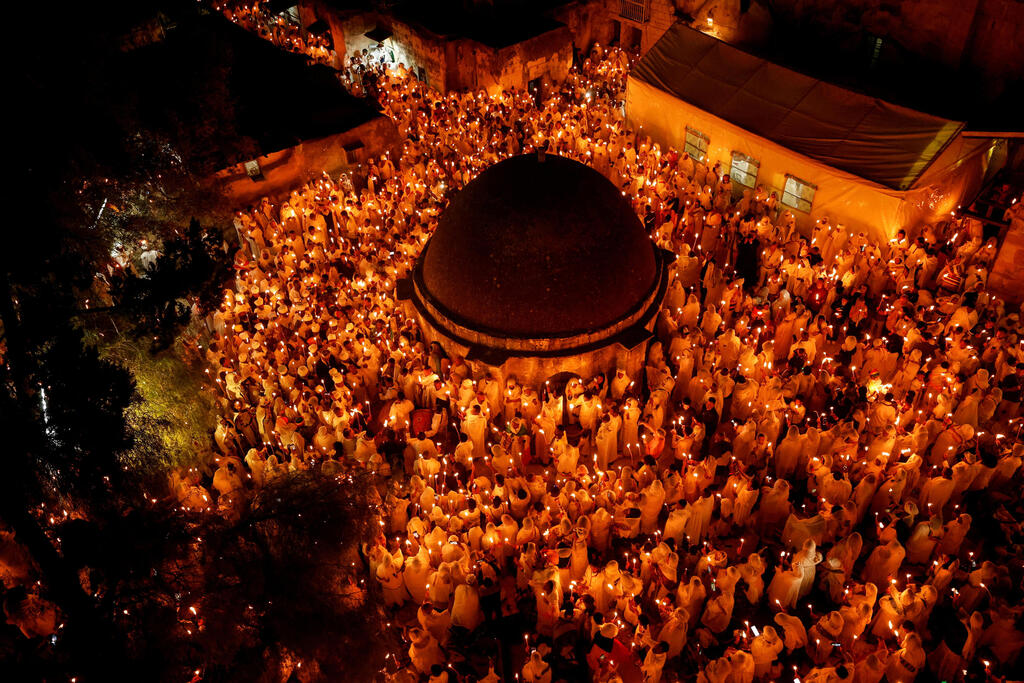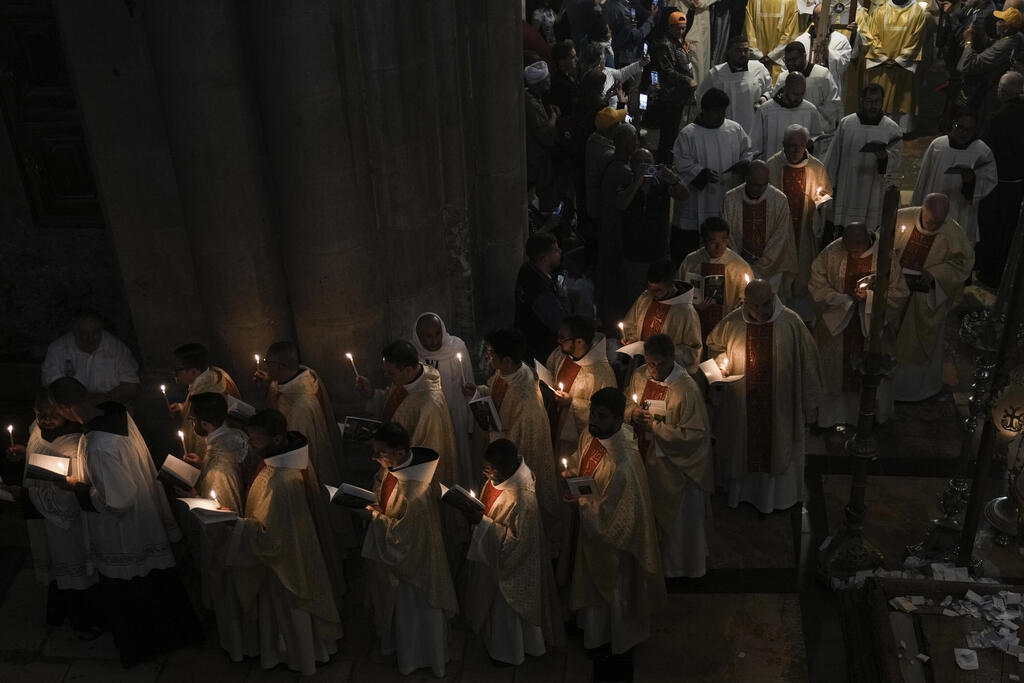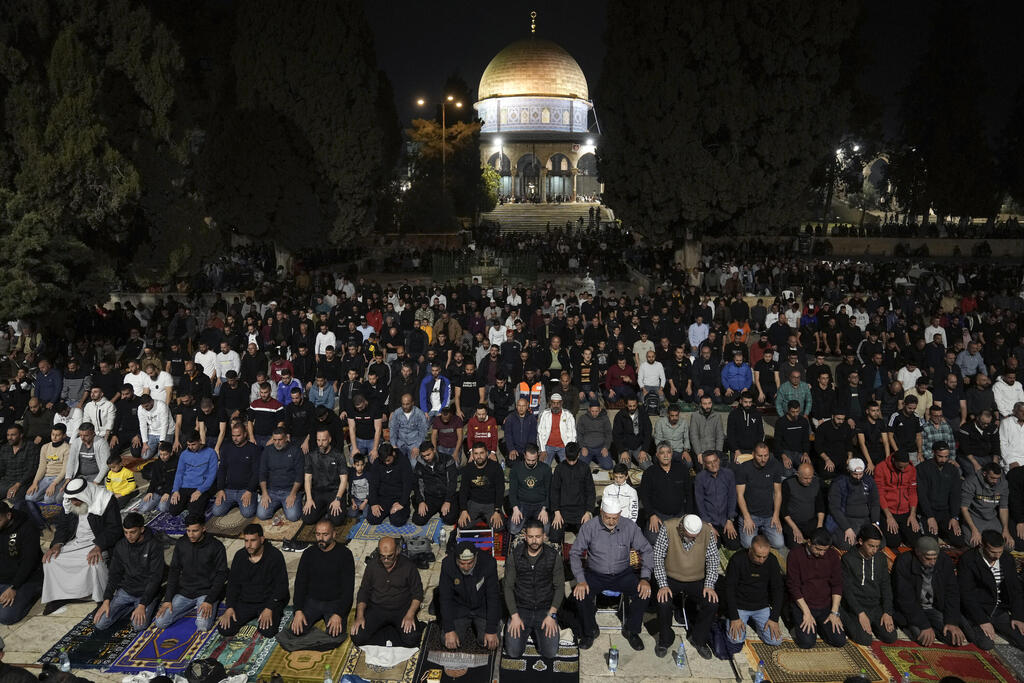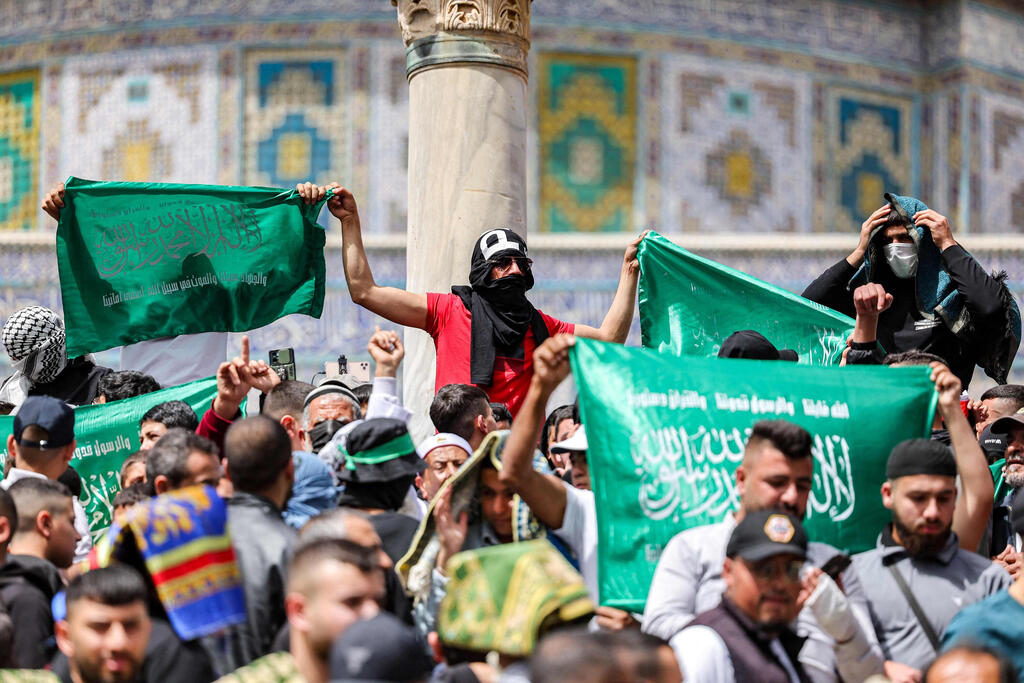Getting your Trinity Audio player ready...
Clashes on Temple Mount
(Police)
Israeli police will curb the number of worshippers in the Church of the Holy Sepulcher in Jerusalem for safety reasons during Orthodox Easter ceremonies on Saturday, drawing anger from church leaders who said they would not cooperate.
Related stories:
With huge crowds expected in the cramped alleyways of the Old City, the restrictions - which will slash the number of worshippers to one-fifth its size in recent years - are aimed at ensuring safety for thousands of Christian worshippers, as well as Muslims and Jews holding their own celebrations, police said.
4 View gallery


Ethiopian Orthodox worshippers hold candles during the Holy Fire ceremony
(Photo: Reuters)
However, the decision to limit access on Saturday to the Holy Fire, the most important Easter celebration for the Eastern Orthodox Church, angered church leaders who saw it as part of what they consider long-standing efforts by Israel to restrict the rights and freedoms of the local Christian community.
Complaining of "heavy-handed" measures, they said they would not cooperate with police. "We shall continue to uphold the Status Quo customs, and the ceremony will be held as customary for two millennia and all who wish to worship with us are invited to attend," the Greek Orthodox Patriarchate, the Custody of the Holy Land and the Armenian Patriarchate said in a joint statement.
In contrast to previous years, when as many as 10,000 worshippers packed into the Church of the Holy Sepulcher, only 1,800 will be allowed inside this year, with another 1,200 outside. Additional checkpoints around the Old City will also restrict access to the area around the church.
This year, the sensitivity around religious festivals in the Old City has been particularly high, with the Muslim holy month of Ramadan, the Jewish Passover holiday and Easter coinciding at a time of heightened Israeli-Palestinian tensions.
On Tuesday, Prime Minister Benjamin Netanyahu announced that Jewish visitors would not be allowed into the Al-Aqsa mosque compound for the last 10 days of Ramadan after a police raid last week set off a furious reaction from the Arab world and exchanges of cross-border fire with Gaza, Lebanon and Syria.
The hilltop site, holy to both Muslims and Jews, who know it as Temple Mount, has been among the most sensitive points during the decades-long conflict between Israel and the Palestinians.
"In full readiness"
After the bout of rocket attacks and air strikes last week, the situation has been calmer over the past few days but Israeli officials said the potential for trouble remained.
"When I look ahead, Ramadan is still a sensitive period," said Israeli military spokesman Daniel Hagari, adding that the coming Friday, which could be the last Friday during the Ramadan fasting month depending on the lunar calendar, was being watched particularly closely. "We are in full readiness," he said.
The issue of access to the Old City for Christian worshippers was not directly connected to the tensions between Muslims and Jews at Al-Aqsa mosque, where Jews are allowed to visit but not pray.
But it reflected complaints from Christians that they are being gradually but systematically shut out of the Old City by Israeli authorities, who they say are upsetting longstanding status quo arrangements between the three communities.
The churches say the Holy Fire ceremony on the Saturday before Orthodox Easter, when a light is held to emerge from the tomb of Jesus, has been held safely for centuries with five times as many worshippers as the authorities are allowing.
Police say a deadly stampede at an Orthodox Jewish festival in northern Israel two years ago, when 45 people were killed, underlined the risks of large crowds of worshippers gathering in restricted spaces.







